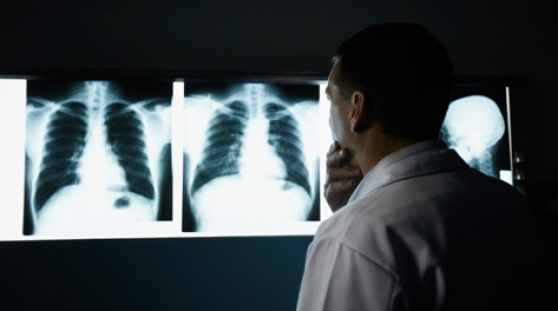Kidney Cancer Health Center
Table of Contents

If you have symptoms that suggest kidney cancer, your doctor will try to find out what’s causing the problems.
You may have a physical exam, along with one or more of the following tests:
- urine tests. Your urine is checked for blood and other signs of disease.
- blood tests. Your blood is analyzed for several substances, such as creatinine. A high level of creatinine may mean the kidneys aren’t working properly.
- an ltrasound. An ultrasound device uses sound waves to make a picture of your kidney and nearby tissues. This picture will show a tumor.
- a CT scan. An x-ray machine linked to a computer takes a series of detailed pictures of your abdomen. The CT scan can show cancer in the kidneys, lymph nodes or elsewhere in the abdomen.
- an MRI. A large machine with a strong magnet linked to a computer makes detailed pictures of your urinary tract and lymph nodes. An MRI can show cancer in your kidneys, lymph nodes or other tissues in the abdomen.
- an IVP. Not used as commonly as other imaging studies, an IVP uses dye that’s injected into a vein to show x-ray images of kidney tumors or other problems.
Biopsy
If kidney cancer is suspected, a small sample of tissue will be removed to check for cancer cells. In some cases, your doctor will do a biopsy to diagnose kidney cancer.
